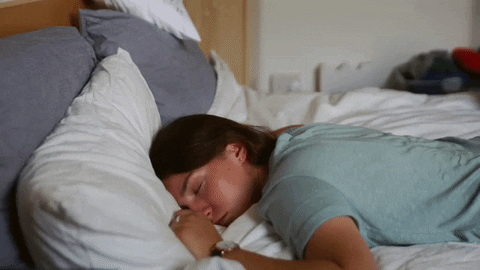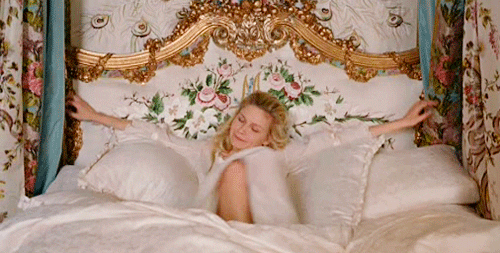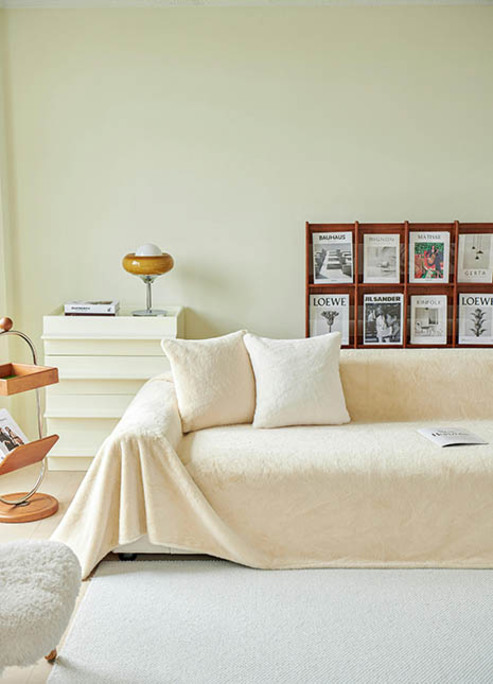
Is Sleep The Ultimate Modern Day Luxury?
Nowadays, getting 5 hours of beauty sleep is a gift from above
Sleep is vital for our wellbeing and with many of us getting less beauty zzz on the daily, depletion to our health is on the rise. But is it an even playing field when it comes to sleep? Or have the rich got nothing to worry about…
Over the course of a lifespan, the average human will have spent about a third of their lives in bed, but the reality for many is that a decent nights sleep is few and far between. We’re a nation of workaholics, all in a race to prove our ability to survive on as little sleep as possible; you going into work and explain how you managed a mere 5 hours of shut-eye, whilst the melodramatic office ain’t projects that she only got 4… you know the ones.
“We want to seem busy, and one way we express that is by proclaiming how little sleep we’re getting,” Matthew Walker, sleep scientist and author of Why We Sleep: Unlocking the Power of Sleep and Dreams, explains in a 2017 interview, “It’s a badge of honour.” But rather than diminish our obsession with productivity, we are now priming a whole industry around sleep aid, so much so that by 2025, the global sleep aids marked will be valued at around $115.4 billion.
Sleep aids are nothing new. Symbolic of cultures for centuries since their advent in the ‘70s, herbal remedies and sleeping pills have been readily consumed. Today we are provided with accessible and affordable duplicates – eye masks, aromatherapy oils, sleep meditation and sleep track apps (if you don’t fancy these then Harry Styles talking for 20 minutes on sleep app Calm will deffo do the trick) – due to an outpouring of sleep innovation the market is dominated by premium solutions, as sleep seemingly becomes the latest luxury must-have.

Ambience modifications, sleep monitors and smart alarm clocks to therapeutic treatment (surgeries and apnea treatment devices) there’s a product available for just about everyone. Improving your nights sleep isn’t the only thing they have in common; just take a look at their price tags. Weighted gravity blankets costing £190; ‘green’ mattresses at just under £1000; organic silk pyjamas, bed linen and sheets; silk sleep pillows (which double up as a beauty product according to Goop); and even a £100 stone diffuser.
But, of course, sleep isn’t a luxury, it’s a biological necessity. “In humans sustained periods of total sleep deprivation of 72 hours can result in severe mental and emotional symptoms,” says Dr Ebrahim, medical director at The London Sleep Centre. “Reduced total sleep over a longer period [insomnia] results in increases in reported symptoms of anxiety, depression and over a longer period reduced immune response and increased in cardiac and metabolic disorders, such as diabetes and obesity.”
Sufficient sleep is a struggle for many and there are many reasons as to why this is the case. Commonly cited analysis points to lifestyle changes, namely increased consumption of alcohol, caffeine and a lack of exercise, all of which stimulate our brains causing disruption to relaxation and the ability to fall asleep.
Broader cultural shifts are also to blame. “Our 24/7/365 society has made unique demands on our physiology,” continues Ebrahim. “Over the last decade the addition of the digital age – in particular social media – has physically disrupted our sleep-wake physiology by falsely elevating our alertness levels, keeping us at wakeful levels of body temperature. While 24/7 light means the blurring of work and leisure; we are no longer restricted by nature’s day and night cycles, and, as such, we can stay up working, exercising or partying late into the night with sufficient wakefulness, yet at a detriment to our sleep health.”

With sleep deprivation becoming an increasingly reality for those from lower socio-economic backgrounds, prominence validates that not everybody is affected in the same way. According to professor Lauren Hale of the Renaissance School of Medicine, Stony Brook University, New York, people who have fewer financial resources have less control over the lives, including the circumstances around their sleep (eg, timing, lighting, noise, etc). “You can imagine that a single mother with multiple jobs may not be able to prioritise her sleep when she is more concerned with paying and getting food on the table,” says Hale.
Optimal sleep requires relaxation and calamity. We need a sense of security and protection from danger; the reality is that no amount of aromatherapy oil is going to mitigate these structural sleep inequalities. For short-term sleep solutions Dr Ebrahim recommends keeping a regular sleep-wake routine, exercising daily before 4pm, as well as avoiding all digital devices for at least one hour before bedtime. Although, there needs to be a structural revamp in order to address the sleep disparities. “The public health community needs to consider sleep health as a fundamental health behaviour along with diet and exercise,” Hale continues. “Our leaders should embrace and celebrate sleep rather than consider it a personal weakness.”
In a world where nothing is certain, it is no wonder so many of us struggle to sleep. However, today our inability to rest comes at a price, not just that of our health but of our bank balances too. There is no denying the allure of luxury sleep solutions. But it is questionable that these products are neither available nor accessible to those who need them most. Correlating the fight for equal opportunities to housing, education and health continues, may we be committed to ensuring sleep is on this list and everyone around the globe can enjoy a peaceful night of sleep.











